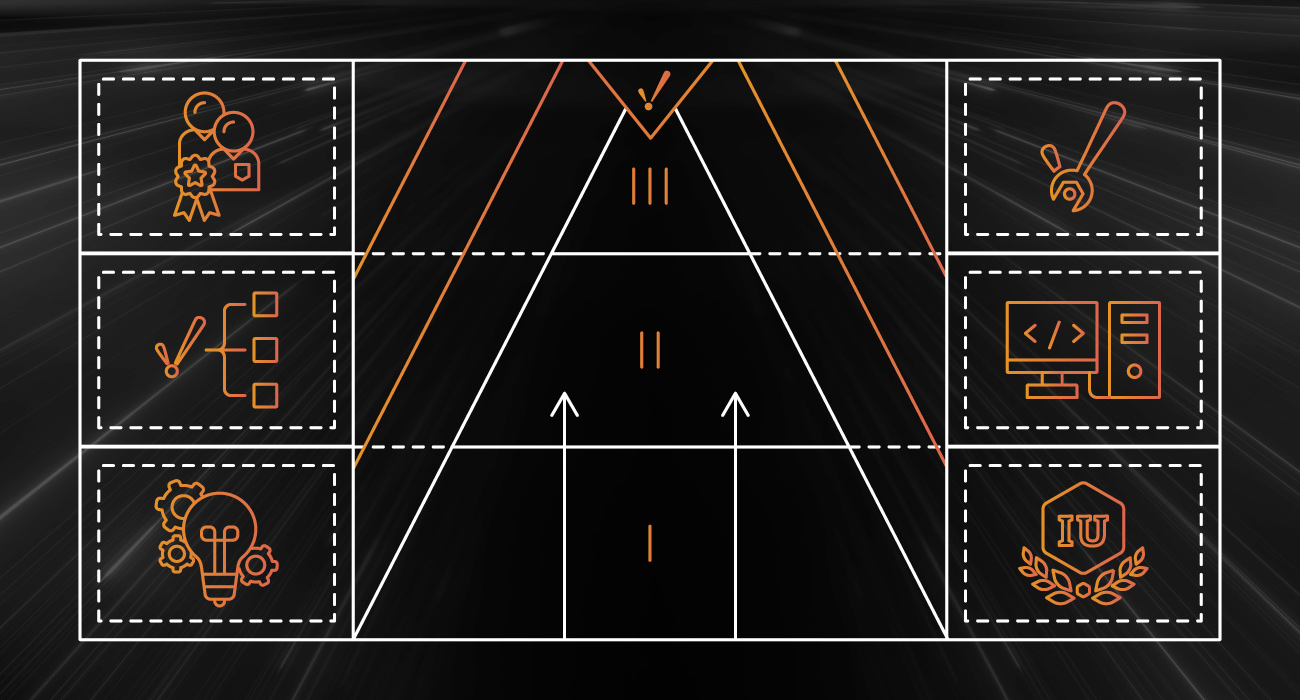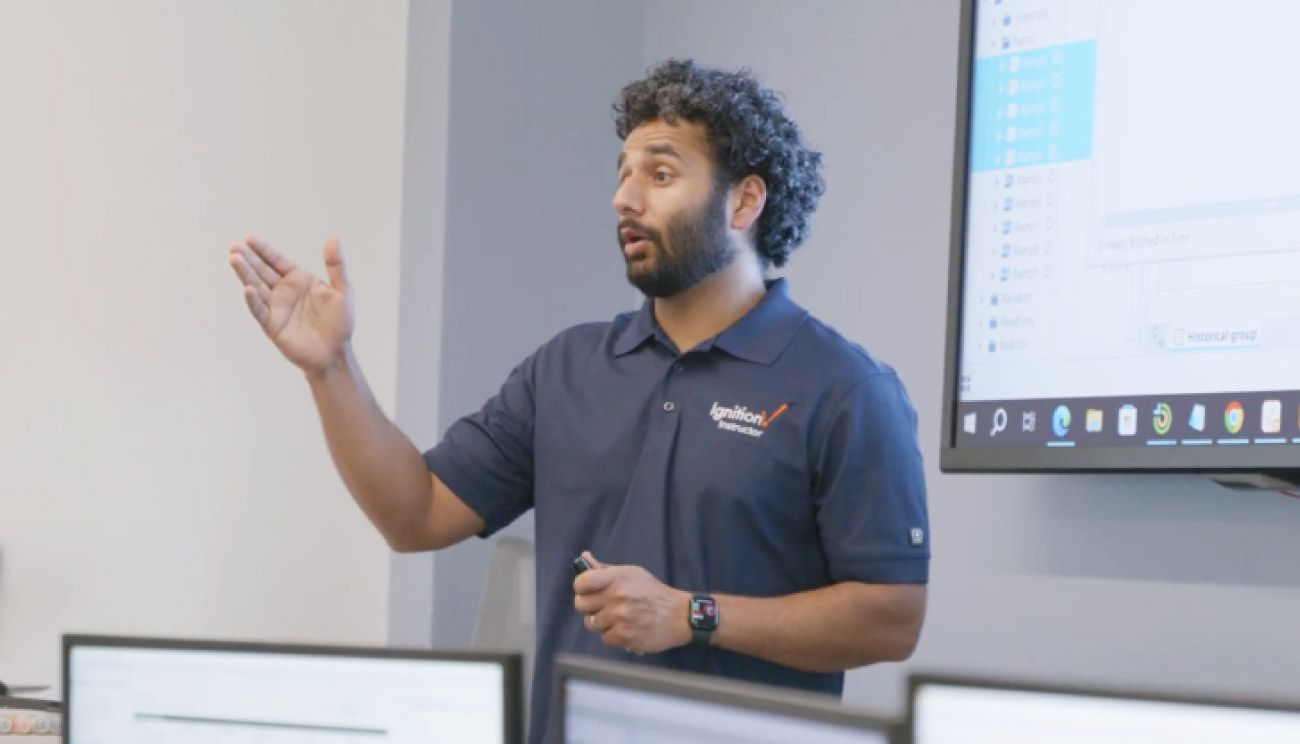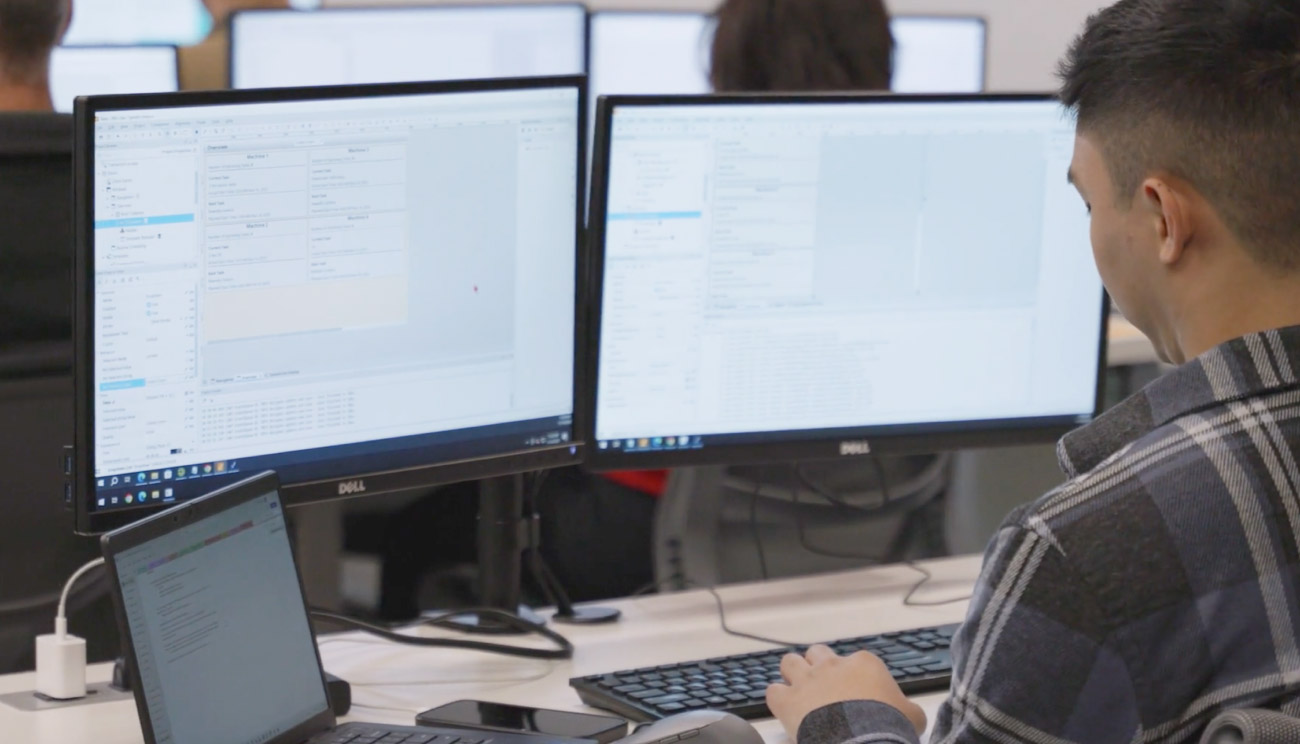The Ignition Training Program Is Getting A Major Upgrade

Inductive Automation has long been recognized for offering some of the most accessible, hands-on training in the industrial automation space. Whether you’re brand new to Ignition or an experienced developer looking to deepen your skills, the Ignition training program has been a key resource for growing your technical knowledge and achieving a certification.
Now, with the next evolution of the Ignition platform on the horizon, Inductive Automation is rolling out some of the biggest changes ever to its training approach. These updates are designed to make learning Ignition easier to navigate, more focused on your skill level, and better aligned with how people actually grow their expertise over time.
This extensive training overhaul includes the introduction of a new Knowledge Level system, updated course structures, new classes, and updates to certification. Here’s what you need to know about what’s coming.

Introducing The New Knowledge Level System
Later this year, Inductive Automation will launch a Knowledge Level system that will shape not only the training program but also other learning resources like Knowledge Base articles, documentation, and more. The goal is to create a clear, consistent framework that helps learners identify where they are in their learning journey and what resources can help them reach the next level.
The system defines three distinct Knowledge Levels:

Level 1: Basic Knowledge
The first level is for those who are new to Ignition or have very limited experience with the platform. These learners may be starting out on their first project or simply looking to understand the basics.
At this level, learners will encounter foundational classes like the Core class, self-guided options through Inductive University, and practical exercises such as the Ignition Design Challenge. Level 1 culminates with the Core Certification test, providing an official benchmark of basic Ignition knowledge.

Level 2: Intermediate Knowledge
The second level is for learners who already have some experience with Ignition. For example, these students have typically contributed to at least one project or successfully passed the Core Certification test.
At this level, the focus shifts to applying knowledge in real-world scenarios, enhancing existing skills, and diving deeper into specialized areas of the platform. Classes on topics like databases and scripting, advanced style sheets, and designing applications for mobile devices will fall into this level. Level 2 culminates with the Gold Certification test, where learners will have to build a project in Ignition.

Level 3: Advanced Knowledge
The third level is for seasoned Ignition developers who have already completed projects and are ready to tackle advanced topics. This level includes specialized resources such as advanced troubleshooting guides, deep dives into Ignition deployment strategies, and the most technical KB articles.
This new Knowledge Level system is not limited to training alone. Over time, it will shape the way Inductive Automation organizes articles, videos, workshops, and support resources, creating a more cohesive learning experience.

What’s Changing In The Classroom?
The Knowledge Level system is only one part of the training transformation. Inductive Automation is also redesigning the structure, format, and materials of its classes to make them more interactive, flexible, and aligned with learners’ goals.
A More Hands-On Learning Approach
Practice will be a larger part of the class structure. Instead of saving lab work until the end of each class day, exercises and practice will now be woven throughout the entire day. This allows learners to immediately apply what they’re learning, reinforcing concepts in real time.
The traditional class book is also being reworked. Rather than acting as a step-by-step guide that mirrors the class, the new book will serve as a guided tour of each example, paired with a series of practice prompts. The focus here is on interactive learning and instructor-led demonstrations, encouraging engagement over passive reading.
Flexible Class Lengths Focused on Content
Another key change is that classes are moving away from rigid five-day structures. Instead of shaping content to fit a full week, classes will be focused on specific features and skill-development goals, with options ranging from half-day workshops to five-day deep dives depending on the subject matter.
This flexibility allows for more focused learning and better accommodates different schedules and experience levels. The advanced classes, in particular, will often be shorter than five days, honing in on targeted skill areas.
Certification Through Testing, Not Labwork
With these changes to the classes, learners will be able to focus on the material and push their skills to the limits. Learners can earn certification after class by completing a certification test instead of focusing on prompts during class. This shift reflects the philosophy that certification is a true demonstration of knowledge and skill, and that class is where students can experiment and learn.

Updates To Existing Classes
The existing Ignition Core and Database and Scripting classes are also undergoing important changes to align with the new system.
Core Class
The Core class remains the flagship of Ignition training but it is getting a few key adjustments. It will continue as a five-day class but now introduces Perspective earlier, replacing the previous Vision-first approach. Scripting will no longer be included in the Core class, in order to keep the focus on foundational concepts.
Databases And Scripting
The current Databases and Scripting class is being split into two separate courses to better match different experience levels:
- Intro to Databases & Scripting will be a Level 1 class that teaches the fundamentals of databases and scripting.
- Using Databases & Scripting in Projects will be a Level 2 class for learners who already understand the basics and want to deepen their skills in applying SQL and Python effectively within Ignition.
This split allows each class to better meet learners where they are, whether they’re just starting out or ready to integrate database and scripting work into active projects.

Perspective And Related Classes
The Perspective class also included database and scripting content, which often made the course challenging for participants. To address this, Responsive Project Design in Perspective is being developed as a dedicated Level 2 class, pulling out these specialized concepts for focused coverage.
Additionally, a new class on advanced style sheets called CSS in Perspective will give developers the skills they need to leverage advanced style sheets effectively within Ignition projects. This class represents the new standard for future classes: short, focused, and offered throughout the year.

Why These Changes Matter
By making classes more interactive, aligning them with real-world needs, and clearly defining learning levels, Inductive Automation is helping users advance their skills with greater confidence. Whether you’re new to Ignition or looking to deepen your expertise, these changes are designed to meet you where you are and provide a clear path forward.
Official release dates and registration details for the new classes will be announced later this year. If you're ready to learn, grow, and get certified, contact the Training Team and learn more.
